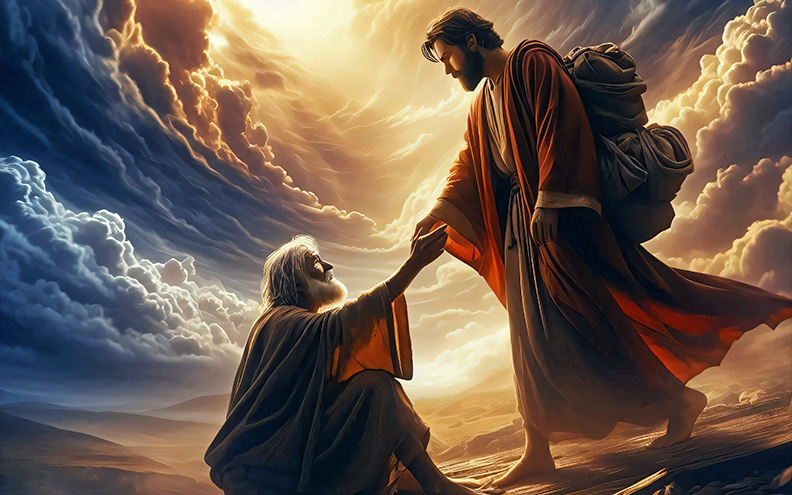The Parable of the Good Samaritan: A Lesson in Mercy and Love

Dear Brothers and Sisters, today, we’ll delve into one of Yeshua’s most famous parables—the Parable of the Good Samaritan. This story not only teaches us compassion but reveals a profound truth about who our neighbor truly is.
Let’s revisit the tale. A man was traveling from Jerusalem to Jericho when he fell victim to robbers. They beat him, stripped him of everything, and left him to die on the roadside. A priest and a Levite passed by, and both ignored him completely, offering no assistance. Then a Samaritan appeared, who, upon seeing the wounded man, was moved with compassion. He bandaged the man’s wounds, transported him to an inn, and personally ensured his care.
What message did Yeshua want to convey through this parable?
First, it reminds us of the commandment to “love your neighbor as yourself.” But who exactly is our neighbor? Yeshua demonstrates that our neighbor isn’t just someone close to us by blood or faith, but anyone in desperate need of our help.
Secondly, this parable shatters stereotypes. Samaritans were considered enemies of the Jews, yet it was the Samaritan who displayed genuine mercy. Yeshua teaches us to recognize the divine image in every person, regardless of their background or social standing.
Third, this story speaks about love in action. The Samaritan didn’t merely sympathize—he acted. He provided first aid, spent his time and money, showing that true love always manifests in concrete deeds.
Finally, the parable points to the Messiah himself. Just as the Samaritan rescued a dying man, Yeshua came to save us when we were spiritually dead in our sins.
Brothers and sisters, let us emulate this good Samaritan and the Messiah himself. Let’s show mercy to anyone in need, regardless of their origin or beliefs. May our faith be expressed through tangible acts of love.
Our world desperately needs compassion that transcends boundaries—cultural, religious, and personal. Each of us has the power to be a beacon of hope, to reach out when others turn away, to heal when others ignore. This parable isn’t just a story—it’s a radical call to see humanity through the lens of unconditional love.
In a world often divided by prejudice and indifference, we’re challenged to be different. To stop. To care. To act. To love.
